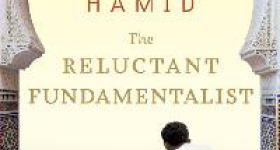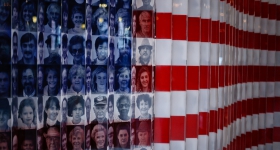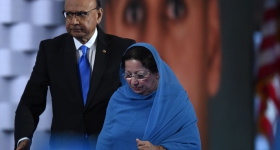In the pioneer section of Evergreen Cemetery in Juneau, AK, lies a lone Chinese man. His plaque reads: “China Joe. Friend and benefactor of the prospector during the early days of the gold rush to the northland. He lived by the golden rule.”
Despite the accolade, the plaque doesn’t mention the turbulent times Joe had lived in. Joe was the only Chinese person who wasn’t forced to leave Juneau in 1886 when anti-Chinese sentiments swept through the country like wildfire. For 20 years, he was the only Chinese person in Juneau.
“China Joe was honored and loved… because of his goodness and constant readiness to divide his last with a needy neighbor,” Ed Beattie wrote in a 1949 article in the Alaska Sportsman.
Born as Chew Chung Thui in 1834 in Guangzhou, a Southern Chinese province, Joe first landed in British Columbia in 1864. The 1874 gold rush in the Cassiar brought him to Alaska, where he opened a bakery near Dease Lake.
During one winter, the upper Stikine River froze earlier than usual, preventing steamers from delivering provisions to miners. Before the winter ended, everyone ran out of flour, except Joe. Two gamblers, sensing an opportunity to make a fortune, offered to buy all of Joe’s supplies. Joe declined and they threatened him. Joe then called a meeting and divided his provisions evenly to all the people in the camp, including the two gamblers.
“Who is there to know whether it came from his heart or his brain?” asked storyteller Brett Dillingham, who wrote a play about Joe with Mark Whitman. “I think that it came from both.”
Joe followed his friends to Juneau in 1881, when the discovery of gold in Gold Creek basin started a rush. He put up a hotel and bakery downtown. Children liked him because he gave them cookies when they walked past his bakery. Travelers at night told directions by the lighted lamp Joe kept in his cabin window for them.
There were other Chinese men in town, working in mines. In his article “Prospectors, Profits and Prejudice,” historian Ted Hinckley describes how Chinese laborers were popular because they were hardworking and willing to be paid less. But as the economy soured, non-Chinese laborers blamed the Chinese for taking jobs. In 1882, Congress passed the Chinese Exclusion Act, suspending Chinese immigrants for 10 years.
“From California to Seattle, Washington, there were instances of Chinese quarters being burned and the survivors forcefully expelled,” Hinckley wrote. In Juneau, two attempts were made in 1885 to blow up the houses where Chinese laborers stayed. On August 6, 1886, about 100 men herded 86 Chinese miners to the beach on Douglas Island, put them in two schooners and ordered them never to return.
Rioters who marched to collar Joe found a rope lying on the ground across the road to his cabin. A man emerged from behind Joe’s bakery and told the rioters of Joe’s generosity. He wasn’t alone.
“From every vantage point—doorways, windows, behind logs and stumps—riflemen appeared, each ready to lay down his life if necessary in defense of China Joe,” Beattie wrote.
None of the rioters dared to pass the line. Joe stayed.
People can get a glimpse of Joe’s life from a few things he left behind. In the Alaska State Museum, there is a Chinese stringed instrument that once belonged to Joe. His membership picture for the 1887 Pioneers Association shows a dapper-looking man with a braided pigtail wound above his forehead. He signed his will with Chinese characters.
Beattie said Joe must have felt lonely.
“Not a soul with him or near him capable of understanding the deep significance of it all. No one with whom he could speak his mother tongue,” Beattie said.
On May 18, 1917, Joe died of heart failure at 87.
People didn’t forget Joe though. In 1960, former Juneau Mayor Charles Cater, who had received cookies from Joe when he was a child, made a memorial plaque for Joe. Mark Whitman wrote his play about Joe after learning about him him 22 years ago. Touched by Joe’s story, Whitman visits Joe’s grave on the anniversary of his death and removes leaves from his tombstone.
“Joe used to clean his friends’ graves. He would like someone to do that for him, too,” Whitman said. “Do what you would like others do to you—that was the golden rule he lived by.” 
Writer I-Chun Che is a reporter for the Juneau Empire. She emigrated from Taiwan to the United States about five years ago.









Comments